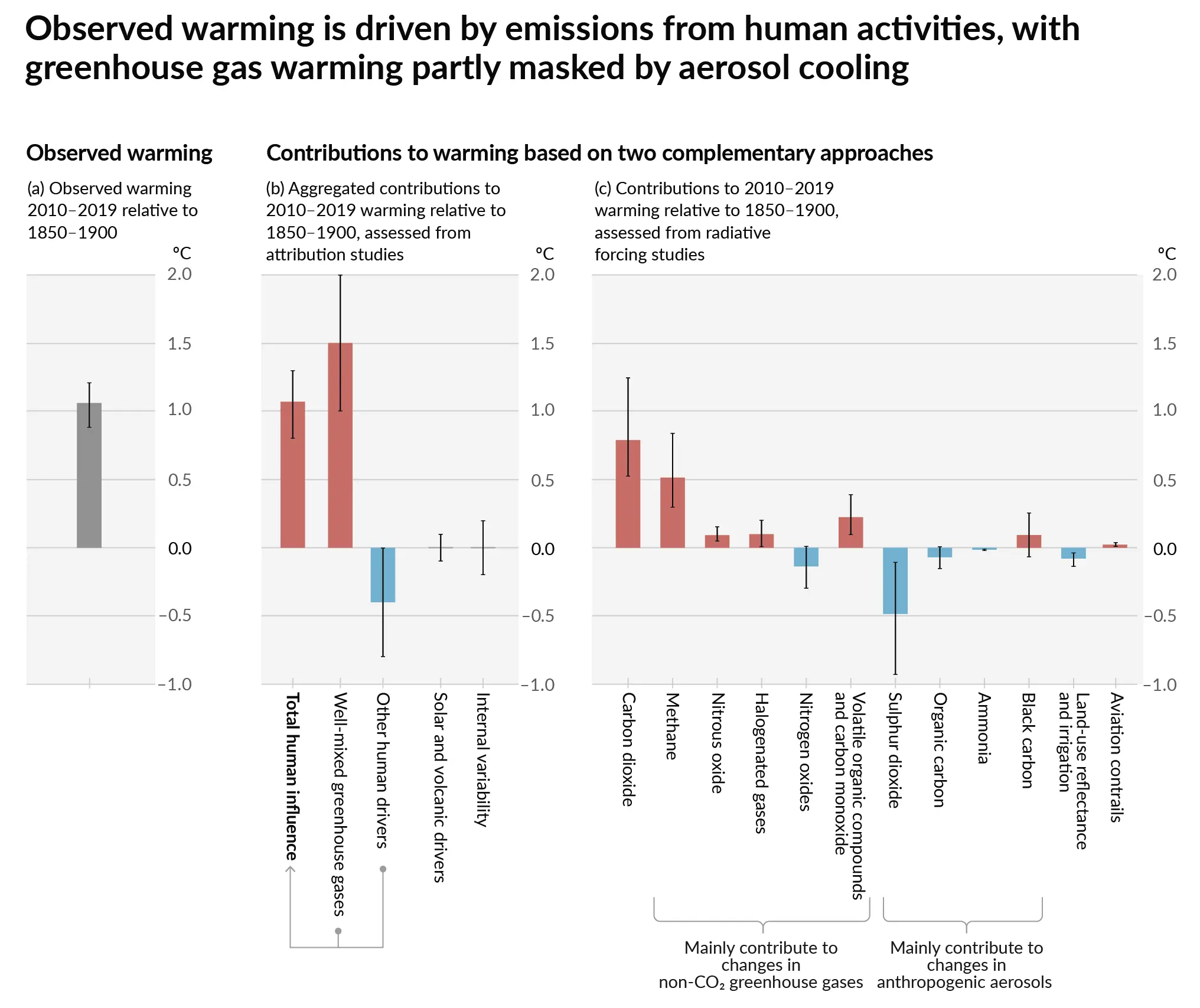@silence7 @empiricism Research has also shown that cutting meat & dairy consumption worldwide would liberate an area of land equivalent to the whole of Africa. That land could be returned to nature and could absorb 16 years worth of global grewnhouse gas emissions.
Climate - truthful information about climate, related activism and politics.
Discussion of climate, how it is changing, activism around that, the politics, and the energy systems change we need in order to stabilize things.
As a starting point, the burning of fossil fuels, and to a lesser extent deforestation and release of methane are responsible for the warming in recent decades:

How much each change to the atmosphere has warmed the world:

Recommended actions to cut greenhouse gas emissions in the near future:

Anti-science, inactivism, and unsupported conspiracy theories are not ok here.
could be returned
Yeah. Could be. It is not easy by any means. A lot of this land like large feedlots would need significant rehabilitation efforts. Further, pedological carbon sequestration is slow, and entirely microbially driven
Even converting a hay crop to native prairie is a gargantuan effort.
We really, really, need to manage our lands better and plan for scenarios where they can be used in ways other than their initial land use
The potential is certainly there. As well as liberating land for wildlife, there can be zones used for growing food using agroecological farming methods, which can also provide habitat for a variety of wildlife & locations for housing.
FYI, when you write "research has shown" please provide a weblink too that research, so that people that haven't read the relevant research & or science-based report can read it.
Fundamentally, mono-industrial farming is unsustainable.
@empiricism @silence7 Oxford academic Joseph Poore reported his research in this video https://www.youtube.com/live/zBi8QIc1qXg?feature=share. See also https://josephpoore.com/Science%20360%206392%20987%20-%20Accepted%20Manuscript.pdf and https://animal.law.harvard.edu/.../Eating-Away-at-Climate
It's only the second biggest Methane emitter in Texas. The members of the State Legislature have it beat hands down.
